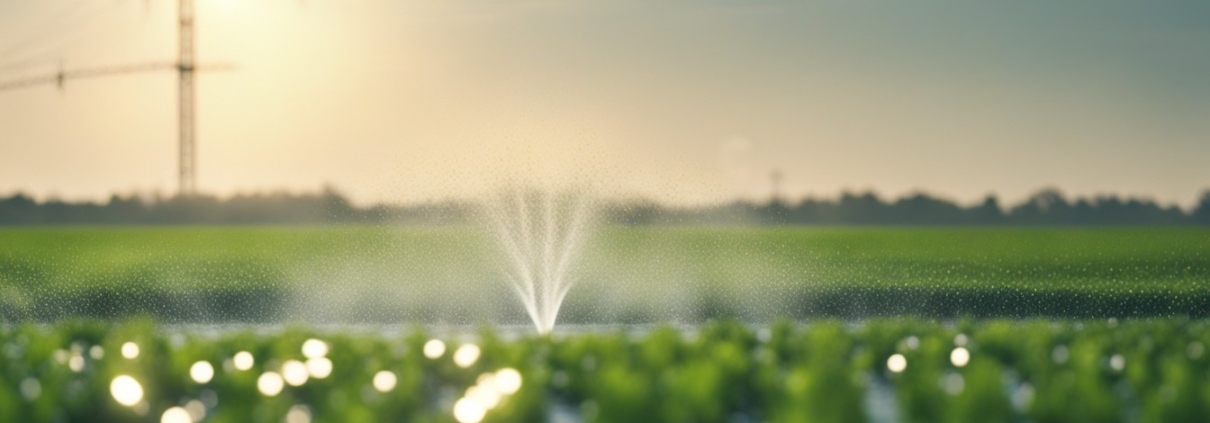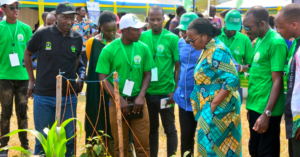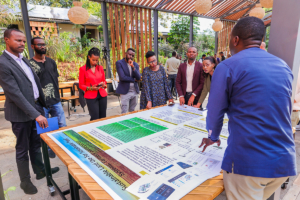Navigating the water-energy-food nexus
Water, energy, and food are interconnected systems - we need to manage them in this way
CLAUDIA PIACENZA & STELLA ODHIAMBO
Latest posts
Share:
While doing my weekly grocery shopping, my thoughts began to drift once I got to the produce aisle. As I reached for a plump avocado (my favourite), I thought: do I truly understand the journey this fruit has taken to get to my local supermarket? Was it sustainably grown? How much water was required to nurture its growth? And what about the energy consumed during its transportation? And the people involved in the production?
In that moment, I was grappling with a much larger issue than simply selecting a piece of fruit. I was confronting a web of interconnected systems known as the water-energy-food nexus.
According to the UN and others, water, food, and energy form a relationship at the heart of sustainable development.
Together they are tied to environmental sustainability, economic growth, and human health and decisions made in one realm can have profound effects on the others. Yet they are often managed in disconnected ways. This leads to policies and practices that do not tackle the complexity of the issue, but advance one system at the cost of others.
Scarcity as an opportunity
In a world where resources are limited and population pressures increase, scarcity is the new normal. This speeds up the move toward a new way of doing things, where one sector can’t only benefit a small, specific group of people anymore. The food sector cannot just feed people; it needs to nourish them, support their health, and delivering eco-system services too.
Similarly, the energy sector must also contribute to social and economic inclusion, and not just support the industrial growth of a country. The inescapable reality of having to do more with less can represent an opportunity to break silos and force conversations across sectors and systems.
It is complex, but change is attainable
To make things even more complex, here are more boxes to check; our food must come from regenerative and circular practices, energy should be renewable, and water managed sustainably. To withstand current and future pressures, governments must increasingly balance the needs of people, nature, and the economy.
Despite the obvious benefits of strengthening the nexus between water, food, and energy, the multidisciplinary and collaborative approaches required often feel overwhelming. Cross-sectoral collaboration is essential if we are to achieve a just transition in our food systems.
Organising for collaboration
When governments, businesses, academia, communities, and individuals come together and share knowledge, resources, and best practice, sustainable policies ensue.
An excellent example is the Water and Sanitation for the Urban Poor (WSUP) program in Kenya. WSUP collaborates with local governments, utilities, and civil society organisations to enhance water and sanitation services in low-income urban areas. Through these partnerships, WSUP tailors solutions to each community’s unique challenges.
The Nairobi City County Food System Strategy on the other hand, plays a pivotal role as a convener. By bringing together civil society, private sector entities, and various government agencies, this initiative addresses the pressing challenges of sustainably feeding a rapidly growing urban population.
Incentives can shift behaviour
Ever wondered why organisations have teams that strongly resemble the funding lines of their donors? And why doesn’t cross-sectoral collaboration happen more often? Understanding how incentives shape behaviour is the first step. Daring to change them is where the magic happens (and where we need to accept the resistance that will come with that).
Placing smallholders at the heart of systems
Let’s look at the work of Sylvie Nirere, a fellow at the African Food Fellowship. As Country Director of Stichting IDH in Rwanda, she works directly with farmers who produce perishable products. By engaging with stakeholders, advocating for policy reforms, and fostering systemic change, Sylvie’s work contributes to sustainable practices, resource efficiency, resilience, and improved livelihoods.
Her efforts embody the systemic importance of transforming the food system by considering the interdependencies of water, energy, and food by bringing it down to the needs of a single farmer who needs a healthy yield to remain competitive and take better care of her family. This feeds into a wider network in an environmentally responsible way.
Learning as we go
By understanding the nexus and its implications, we make informed choices and inspire a collective shift towards more sustainable lifestyles.
The Water Wise Program in South Africa, for instance, promotes water conservation practices among residents in response to Cape Town’s water scarcity challenges.
Balance and Just Transition
Just Transition refers to the set of principles aimed at ensuring a fair and equitable shift towards a more sustainable and low-carbon economy.
African countries, despite contributing less to global greenhouse gas emissions, are taking proactive steps to implement Just Transition projects and policies.
- The Renewable Energy Performance Platform (REPP) in Kenya provides financial and technical assistance to small and medium-sized renewable energy projects in sub-Saharan Africa. It promotes sustainable energy development that is balanced across the food-energy-water nexus, by supporting projects that integrate renewable energy into local agricultural and water management systems, while also creating jobs and reducing poverty.
- Another example is the Renewable Energy Independent Power Producer Procurement Program in South Africa (REIPPPP) , a government initiative to accelerate the development of renewable energy projects in the country.
In conclusion, the water-energy-food nexus calls for initiatives that acknowledge their interconnectedness. Whether you are a donor, investor, NGO, or civil servant, it’s crucial to focus on designing projects that create multiple benefits at this crossroads. Each decision to implement sustainable practices will be a step towards the larger goal of creating a more resilient and balanced water, energy, and food system.
If you enjoyed this, here are a few longer reads and opinions for you:











